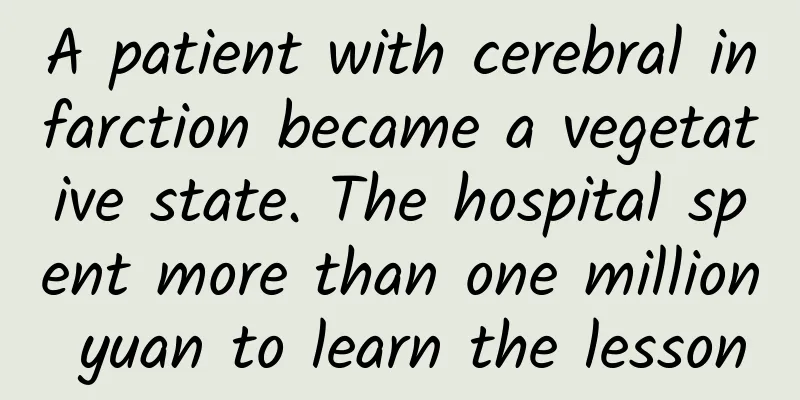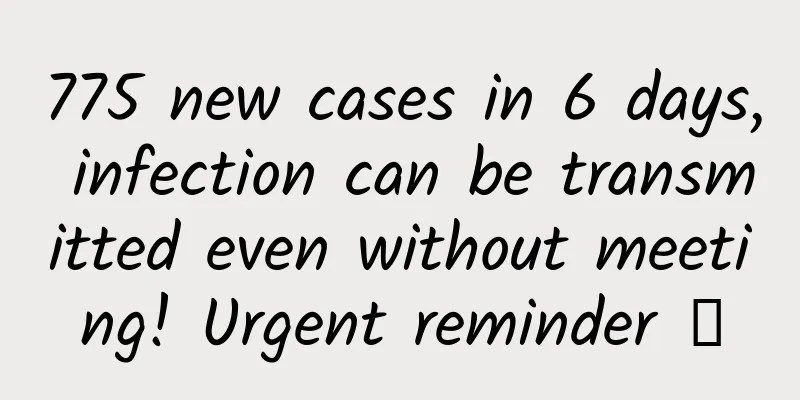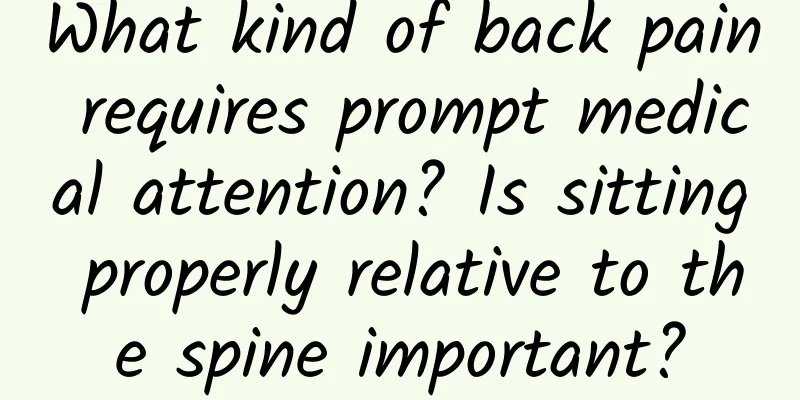A patient with cerebral infarction became a vegetative state. The hospital spent more than one million yuan to learn the lesson

|
Recently, the result of a medical dispute handling has sparked much discussion online. Overview of the incident: A 60-year-old man in Shandong suffered a sudden stroke and was sent to the hospital for treatment. He became a vegetable while in the hospital. After the incident, the judicial appraisal agency said that the doctor used the wrong medicine, and the two doctors involved and the hospital were fined. In addition, the court ordered the doctor to pay more than one million yuan in compensation at the first instance. Even so, the patient's family was still dissatisfied with the verdict and said they would appeal. Regardless of how the incident progresses next, let's analyze this matter rationally: In order to allow everyone to judge from various angles, here is a detailed description of the treatment process: At 2 o'clock in the afternoon one day in early May, the patient's daughter came home and saw that her father was walking unsteadily and speaking unclearly, so she sent him to a nearby clinic for treatment. The doctor saw that the old man's condition was serious and recommended that he go to the county hospital for treatment. After being received by 120, the patient was sent to the county hospital, where a neurologist immediately diagnosed him with cerebral infarction. On the morning of the third day of hospitalization, the patient was able to exercise his left and right legs on his own. However, on the morning of the third day, after receiving an infusion of a drug prescribed by the doctor, the patient fell into a coma. Despite active rescue efforts, he eventually became a vegetative state. Seeing this, many people will sigh: If he can exercise both legs on his own, it means that his condition is not serious, it must be a problem with the doctor. As a doctor, objectively speaking: even if the patient recovers quickly, it does not mean anything. Since cerebral infarction can occur under normal circumstances, it means that the elderly patient's cerebrovascular and cerebral blood supply conditions are not objective. However, the doctor on duty really overlooked this point. During the treatment, the patient was given a drug that had a synergistic effect with the antihypertensive drug. What we want to say about this is that it is obvious that the old man has high blood pressure. Otherwise, the doctor would not prescribe antihypertensive drugs for him every day. This is also in line with the epidemiological characteristics of cerebral infarction: most patients with cerebral infarction have high blood pressure, and cerebral infarction is even linearly correlated with high blood pressure. Because of this, anesthesiologists would rather let the patient's blood pressure be a little higher than to let the blood pressure look good during surgery. Should the elderly take antihypertensive drugs during hospitalization? It cannot be generalized, it depends on the baseline blood pressure. The current guidelines in my country recommend that if the blood vessels are successfully opened, the blood pressure after surgery should be < 140/90 mmHg or 20 mmHg lower than the baseline blood pressure, but should not be lower than 100/60 mmHg. In other words, everything is based on blood pressure monitoring. I believe this doctor must be familiar with such guidelines. So why did he prescribe antihypertensive drugs to the patient? Obviously, the old man's blood pressure must be high. Although the specific blood pressure value was not mentioned in the report of the whole incident, this should be medical common sense. On the day of the accident, the doctor gave him a drug that has the effect of dilating cerebral blood vessels and increasing cerebral blood flow. From a pharmacological point of view, this drug must have a certain blood pressure-lowering effect. The key point is that these two drugs may have synergistically lowered blood pressure. As for how much it lowered, there is no way to know. But judging from the patient's daughter's description of his eyes being tightly closed, not responding to calls, sweating profusely, and pale face, there must have been a big problem. But on the other hand, focusing too closely on low blood pressure may obscure the truth. Why do I say this? Because it happened in the ward. Even if it was caused by low blood pressure, the rescuers who arrived in time would find the low blood pressure and quickly use pressor drugs and rapid infusion to improve it. In addition, the blood pressure would not be very low. Because cerebral blood flow itself has its own regulatory mechanism. When the mean arterial pressure is between 70 and 180 mmHg, the cerebral blood flow is basically stable. In other words, when the blood pressure is not lower than 100/60 mmHg, the cerebral blood flow will not decrease. From the existing research, it seems that the wrong medicine used by the doctor has a certain effect on improving the self-regulation mechanism of cerebral blood flow. Therefore, it can be inferred that the cerebral blood vessels at this time can withstand a lower perfusion pressure, such as 60mmHg or 50mmHg. According to the hospital, the patient was in a vegetative state due to epileptic seizures after a cerebral infarction. Even more professional appraisals cannot deny this possibility. Because, in theory, this is a high-probability event. And in terms of using the wrong medicine, it is only a theoretical speculation that hypotension is possible. There is no other way, and in the end, they can only give each party a 50% slap on the wrist. Both parties are at fault, 50% each. Why were the doctor and the hospital fined separately? This is because the doctor was only concerned with rescuing the patient and did not promptly complete the rescue records. In addition, when using the medicine, the doctor did not carefully consider the synergy of the two drugs, but just took it for granted that "it is usually used like this, nothing will happen." Here is a reminder for everyone: Don’t take medication habitually. Think twice before taking medication. Many accidents happen when you think they are impossible. For patients, no amount of money can buy back health. Cerebral infarction is a disease that never happens for no reason. When high blood pressure, high blood lipids, diabetes or carotid artery plaques exist, cerebral infarction must be prevented as a top priority. In the hospital, any treatment is a double-edged sword. Once something goes wrong, there is no winner! [Warm Tips] Follow us, there are a lot of professional medical knowledge here, revealing the secrets of surgical anesthesia for you~ |
<<: Popular Science: Cardiovascular disease should not be taken lightly
Recommend
Girls fingertips numb
Some girls may easily find their fingertips numb....
What happens if menstruation is not clean?
The menstrual cycle of each of us girls lasts abo...
Menstrual period is delayed, what methods can make menstruation come
Delayed menstruation is very common in life, beca...
Qingbi Tang: When treating chronic rhinitis, you need to be aware of these dangers!
In recent years, the number of people suffering f...
Is "senile dementia" inevitable? | World Alzheimer's Day
As we age, we may experience forgetfulness and de...
What is the reason for immature eggs? 4 ways to treat it
Immature eggs are actually a disease of infertili...
Lochia 15 days clean and bleeding again
Pregnancy itself is a very inconvenient thing, an...
There are more than 100 million diabetes patients in my country. There are many factors that cause and affect diabetes. You should be involved in all of them.
In recent years, the prevalence of diabetes in my...
Ask me about the radiology department
Author: Lu Xiaoping, Radiologic Technologist, Pek...
Sexual happiness of women aged 25 to 45
It is well known that age changes can cause chang...
There's something brown underneath
The normal secretion from a woman's private p...
How many months is it better to take a 4D color Doppler ultrasound?
Many expectant mothers are not very familiar with...
There are blood stains on my underwear when I don't have my period
If you don't have your period but there are b...
How can we reduce arterial stenosis? Can lowering blood lipids reduce the size of atherosclerotic plaques?
Many people ask Huazi the same question: If the a...
An elderly man had hip pain and limping, and it turned out to be "femoral head necrosis"! 6 tips to help you check yourself
Is it true that "if you are patient for a wh...









